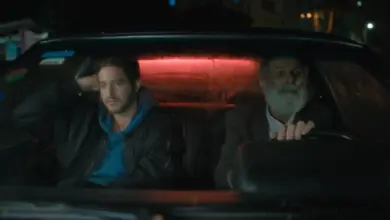NEW YORK – The Human Rights Watch International Film Festival closed on Thursday after showcasing 18 documentaries and shorts from 12 countries, including several inspiring films on sex trafficking and conflict zones, over the past two weeks.
Among the selection, two films stood out for tackling the issue of female sex trafficking in Eastern Europe. The first was “The Whistleblower”, a thriller recounting true events from Bosnia that is based on the book of the same title. The story revolves around Kathryn Bolkovac, an American police officer – played by Academy Award winning actress Rachel Weisz – who accepts a well-paying UN peacekeeping job among international forces in post-war Bosnia.
When Bolkovac arrives in Bosnia, she discovers that many UN officials are involved with local gangsters in kidnapping young girls and forcing them into prostitution. “The Whistleblower” sheds light on a conflict zone through the lives of underprivileged, naïve girls, who are dragged into a life of humiliation and exploitation, while officials from the international organization simply look the other way, or worse, get involved.
The film also highlights discrimination against Muslim women in Bosnia as the local police refuse to file domestic violence reports against their abusers. The London-born Weisz is familiar with political thrillers and war films and shows great depth on screen. We have seen her before playing a Russian soldier in “Enemy at the Gates” and the wife of a politician in “The Constant Gardener”, for which she received an Academy Award for Best Supporting Actress back in 2006. Although they have brief screen time, Vanessa Redgrave and David Strathairn also deliver good performances as UN officials who are helping Bolkovac save the prostitution victims and tell the story to international press.
“The Price of Sex”, which also deals with sex trafficking, is a good piece of investigative reporting. American-Bulgarian filmmaker and photographer Mimi Chakarova went undercover to shoot what is happening behind closed doors. Intimate and revealing, “The Price of Sex” is a feature-length documentary uncovering the shady world of trafficking young women from Eastern Europe to Western Europe and the Middle East. Chakarova was initially driven by her own childhood memories of growing up in a small Bulgarian village before her family immigrated to the US. When she decides to go back, she discovers that her village is a ghost town, where only old people are living out their final days, while the young ones have moved to the West.
Seeking decent work, some of the girls and women fall victim to sex traffickers who offer them jobs as waitresses or bartenders in countries like Turkey and the UAE.
Upon their arrival, the girls find out they’ve been dragged into a prostitution network. One girl even recounts to Chakarova how she wasn’t allowed to leave an Istanbul apartment used as a brothel for weeks until she jumped from a window, risking her life for freedom. The pimps recapture her a few days later from a hospital, where she lies paralyzed and force her to go back to work. “The Price of Sex” is a shocking and poignant movie, but unfortunately, its controversial issues might prevent it from being screened in Arab festivals.
The Iranian documentary “The Green Wave” also stood out as one of the most innovative documentaries in the selection. Director Ali Samadi Ahadi used animation to blend documentary footage shot using cell phones and amateur video cameras with You Tube posts, Tweets and web blogs to recount the dramatic events of the 2009 Iranian elections and violent suppression of mass protests against the re-election of President Mahmoud Ahmadinejad. The filmmaker shows how Iranians risked their lives in the hope of a better future. Echoing the ongoing Arab revolutions, “The Green Wave” should be shown soon in Egyptian movie theaters.
Closer to home, was director Zeina Daccache’s “12 Angry Lebanese.” The documentary is based on Daccache’s work with 45 inmates at a male prison in Lebanon to produce an adaptation of the American classic “12 Angry Men”. Daccache shot the drama therapy sessions she conducted with the prisoners and how the project unfolded collectively.



